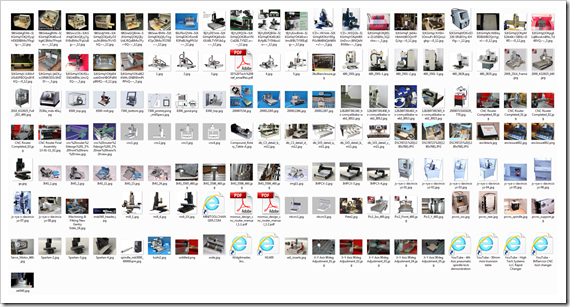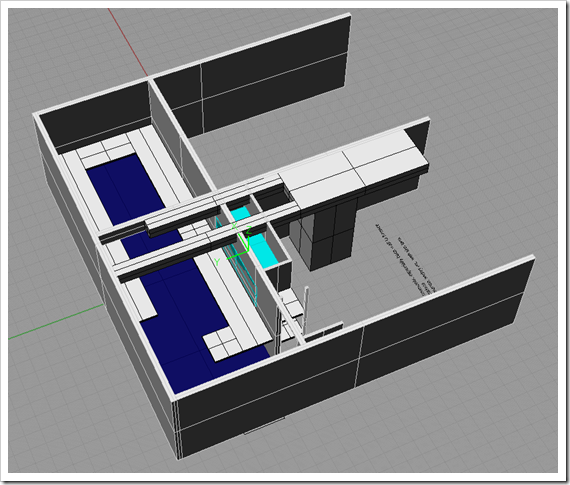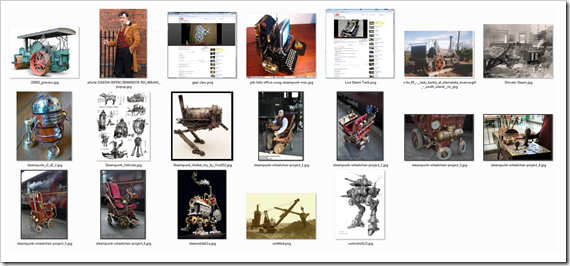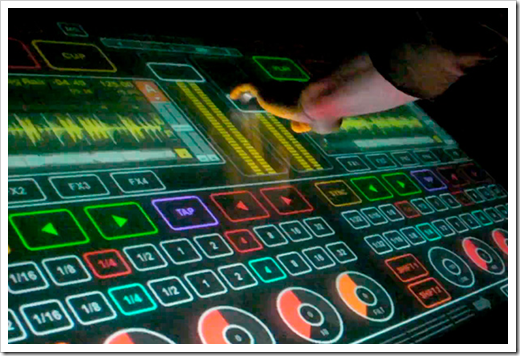In addition to all the programming projects I have in my
backlog, plus things like migrating my website to a new provider
(and finishing migrating the old irritatedvowel hobby pages), I
have a number of fun maker-type projects I want to work on in the
near (and distant) future. In most cases, the projects would
require learning something very new - that's the appeal. If I can't
learn something new and interesting, I quickly lose interest in the
project.
Here are some things I'd really like to do, in no specific
order.
CNC Mill with Larger Work Envelope
I currently have a Sherline mill that has been modified with a
larger table, a
rotary table, and a
servo-based 4-axis CNC setup. I really like it, but the work
envelope is still small for what I'd like to work on. It also isn't
enclosed so it
throws chips everywhere. Enclosing would be a waste because the
14" of X travel requires a box way too big. I'd like to build
an enclosed system with a combination of the flexibility of a
router, but the stability and strength of a mill. It'd also need a
work envelope large enough to mill the front panel of a 19" rack
unit (in support of several other projects), but without taking up
a boatload of space. I already have some ideas for how to
accomplish this, including using eMachineShop to CNC mill a
few of the steel pieces I likely won't be able to do on my own.
I've already started purchasing some of the THK linear motion
components as I find them for reasonable prices on ebay. I already
use Rhino 3d and RhinoCAM Pro for modeling and CAM.
Inspiration includes the Roland MDX 540a and the enclosed MDX
40a, plus tons of other ones. Here's a shot of my "inspiration"
folder for the project. Early in the process of planning a project,
I often start collecting images and links that are similar to what
I'm thinking of doing. I collect those and store them in an folder
named Inspiration off the project root.

3D Printer
I've seen a number of 3d printer projects, and have to admit
that the resolution is getting
much better. Many folks like to build self-replicating
machines, which is awesome. However, I'd want to CNC mill the parts
to make it as accurate as possible to start with. Many of the home
made machines suffer from backlash in the screws, rigidity problems
and other issues which cause them to produce parts that have too
low a usable resolution. I'm no expert, but I can think of some
ideas from the CNC world that can help there. Of course, it's
unlikely that a hobby machine could get anywhere near the
resolution of a commercial device, which uses something almost like
an inkjet sprayer (or small laser) to either spray or harden
plastic.
Custom Gear Mill
Cutting gears can be done a number of ways on a mill. However, a
full 4 axis mill tends to be a bit of overkill for that. I'd rather
build a small but extremely rigid dedicated gear cutting machine.
If rigid enough, it could cut gears even in steel, something a more
general-purpose home-built mill is not really great for.
CO2 Laser Cutter
Not high on my list, but interesting anyway. There are sites now
dedicated to DIY CO2 laser cutters that can cut wood, plastic, and
even aluminum. Yeah, I'm interested.
New Home Office
My current home office is in a corner of the basement with no
circulation. I want to move to the opposite side of this wall, and
move our upstairs tropical aquarium into this room, and upgrade it
to be larger. That side of the house has a window, more room, and
most importantly, doesn't share air with the heat-generating
washing machine and dryer. I have plans for this, it just requires
me to finish some home projects here to move the lumber and trim
out of that room.

The wall with the aquarium on it doesn't currently exist. Also,
this is the utility room, so there's some ductwork above that I
have to work around (and sound proof). The room would be a combined
projects workshop and office. The open space on the back wall is
required by code for access to the breaker box.
Quadcopter / Quadrotor
Yeah, flying robots are very cool. I'd like to build one (likely
on the larger CNC machine) with a camera, onboard navigation,
camera, and other goodies. Maybe guns and bombs too ;)
Here's the
latest progress from someone else doing essentially the same
thing, even powering it with the .NET Micro Framework. You have to
love the look on his daughter's face when she realized it wouldn't
yet fly :)
Steampunk .NET Micro Framework-Powered Robot
I have some great ideas for a .NETMF-powered steampunk styled
robot. I'd ideally like to have the larger CNC mill to complete
this. I'm thinking of one that looks is action figure-scale and
incorporates wheeled locomotion ideas from trains, but has a
proliferation of large custom-milled gears. Of course, I have an
inspiration folder for this too:

(Yes, say hello to the Doctor)
Minibots
I have a huge pile of really inexpensive small motor and wheel
sets. I'd like to either CNC mill or 3d print bodies for these
things and make an army of kid-friendly mini robots.
Surface-Like Touch Interface

There are lots of examples on the web of folks who have built their
own plexiglass and IR LED-based "big ass
tables". Also,
commercial versions of the same DJ tables. Of course, this has
been outpaced by Surface 2, but that technology is not currently
DIY accessible. I don't plan on doing something for DJ'ing, but
just general experimentation.
Aquarium LED Lighting
LED lighting has come a long way. It's generally more efficient
than even fluorescent lighting like the T5 HO units I use on my
current aquarium. LED lighting also provides a more pleasing
shimmer effect in the water. Here's a nice
write-up of DIY LED lighting on the Reef Central forums.
Aquarium CO2 and Lighting Automation
Speaking of aquarium projects, I'd like to create a .NETMF
automation solution for the new tank in my home office (when
built). It would be awesome if it could take readings from the
water at regular intervals, and adjust CO2, lighting, or other
additions as necessary.
Home-Made Analog Synthesizer
I have a number of interests here. I'd like to create a real
analog synthesizer, using .NETMF to handle patch management and
editing and the overall synth operating system. I have one simple
DIY synth board
that will help me get started initially, letting me work on an
operating system and user interface rather than get hung up in the
sound-producing logic. Eventually, I think I'd either expand on
that, or replace it with custom hardware.
That's the current list. I'm sure I'll remember a bunch of other
projects once I actually post this. :)
